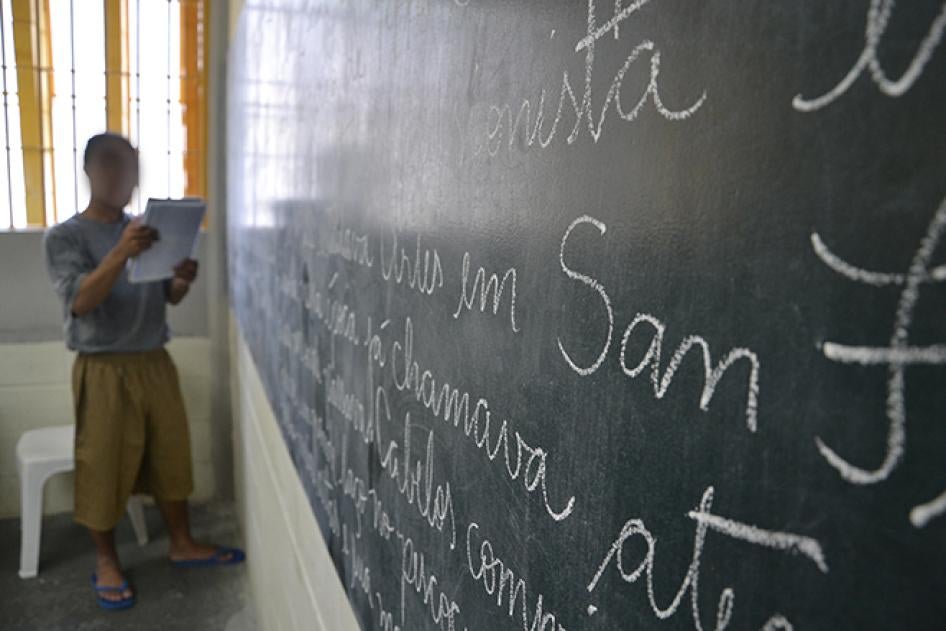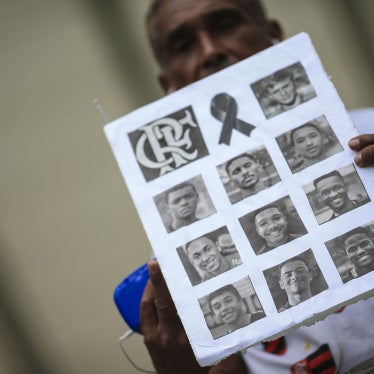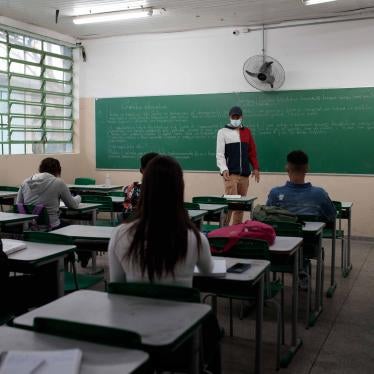(São Paulo) – A key committee in Brazil´s Senate should reject a proposed Constitutional amendment that would allow courts to try and punish some 16- and 17-year-olds as adults, Human Rights Watch said today in a letter to the committee members.
The Constitution, Justice and Citizenship Committee of the Senate is scheduled to vote on the amendment, PEC 33/2012, on September 27, 2017. If it passes, it would go to the full Senate. The Chamber of Deputies approved a different amendment to try children as adults in 2015, and sent it to the Senate, where it is also under discussion.
“Many Brazilians are understandably worried about violent crime, but this amendment represents an inhumane and ineffective response to the problem,” said Maria Laura Canineu, Brazil director at Human Rights Watch. “Available evidence shows that trying and punishing children as adults actually endangers public security because it increases recidivism.”
The report that provides the rationale for PEC 33/2012 emphasizes that children should only be tried as adults in “specific and extraordinary” circumstances. But in fact the bill opens the door to its wide application, as it would allow trying youth as adults for a variety of crimes, including homicide, rape, kidnapping, infliction of very serious bodily injury, and repeat offenses of armed robbery.
In the state of São Paulo, 38 percent of children confined in the first six months of 2017 were in detention for armed robbery, according to official data provided to Human Rights Watch. São Paulo houses about 40 percent of all children in confinement in Brazil.
The amendment would violate international legal standards that have been enshrined in human rights treaties ratified by Brazil. Several UN human rights bodies and the Inter-American Court of Human Rights have repeatedly stated that children under 18 should not be tried as adults, but rather in juvenile justice systems designed to protect children’s rights.
Studies conducted in the United States, one of the few countries that still tries children under age 18 as adults, show that this practice undermines public security. A 2007 task force found that it “typically increases rather than decreases rates of violence” among the juvenile offenders and concluded that it is “counterproductive as a strategy for preventing or reducing juvenile violence and enhancing public safety.”
Similarly, a 2010 report by the US Justice Department concluded that processing children through the regular justice system “does not engender community protection” but instead “substantially increases recidivism.”
Youth tried as adults under the amendment would be denied the opportunities for rehabilitation afforded under Brazil’s Statute of the Child and Adolescent (ECA). Under that law, confinement is reserved for the most serious cases, and in those cases children in conflict with the law are placed in “socio-educational centers,” where they must have access to educational opportunities and individualized professional support to help them turn their lives around.
Instead, children tried as adults would be held in undetermined facilities, under undefined detention conditions and rules. The amendment only says that if convicted as adults, children must be held “in a separate facility from people older than 18.”
“Proponents of the amendment say Brazil´s juvenile detention system is failing, and that the country needs to treat children as adults, ignoring the fact that the country´s record of criminal justice for adults is terrible,” Canineu said. “A measure that can truly reduce recidivism and crime would be to invest enough in the juvenile justice system to make it work the way it is supposed to.”









